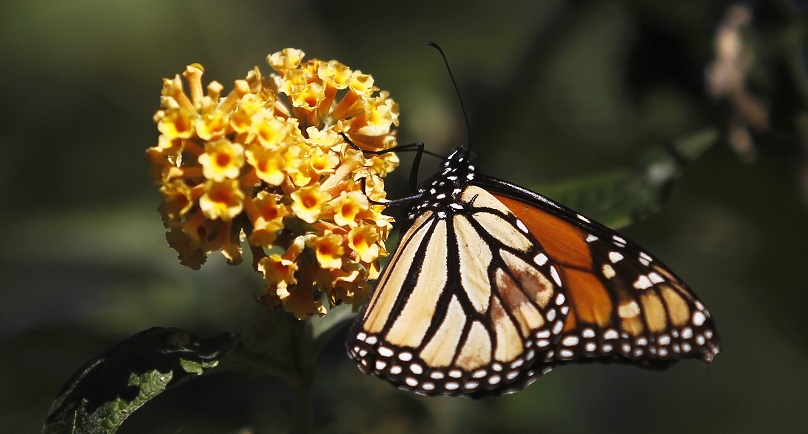Image: A monarch butterfly clings to a plant at the Monarch Grove Sanctuary in Pacific Grove, California, in this December 30, 2014, file photo. REUTERS/Michael Fiala/Files
By Jon Herskovitz
AUSTIN, Texas (Reuters) – Favorable weather conditions at breeding grounds for monarch butterflies in Mexico are expected to help raise their numbers to possibly more than 100 million this year, about triple of a few years ago, a study released on Thursday said.
But the overall number of the majestic orange and black butterflies that travel thousands of miles (km) on a migration into the United States and Canada is still well below the 1 billion range of two decades ago, the study from a Texas A&M University researcher said.
“It’seems conditions have been successful for monarchs overwintering – not too wet or cold, which can be a lethal combination for them,” said Craig Wilson, a senior research associate at the university in the Center for Mathematics and Education.
The butterflies have suffered from the expansion of farmland, sprawling housing developments and the clear-cutting of natural landscapes along their migration path.
Monarchs lay eggs only on milkweed plants, which grow wild throughout the United States. But the milkweed, on which their larvae feed, can cause stomach problems for cattle that eat it, so ranchers and farmers destroy it.
The butterflies breed in Mexico and then have three more generations as they travel north to Canada.
Millions of butterflies fly en masse, often alighting on the same trees their grandparents used.
“There are new programs to establish milkweed planting, and the public is urged very much to do so. The monarch’s survival depends on it,” Wilson said.
The insects’ plight has become an international issue. In February 2014, the United States, Mexico and Canada agreed to set up a joint task force to protect the butterflies.
While an estimated 1 billion monarchs migrated in 1996, only about 35 million made the trip in 2013, according to Marcus Kronforst, a professor of ecology and evolution at the University of Chicago who has studied monarchs.
(Reporting by Jon Herskovitz; Editing by Sandra Maler)
Copyright 2015 Thomson Reuters. Click for Restrictions.


